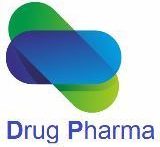
You should reconsider taking prescription medication in the hopes that a supplement will lower your cholesterol. According to the most recent study published in 2022, six joint dietary supplements do not affect lowering the level of “bad cholesterol” (or LDL) compared to placebos or low-dose cholesterol-lowering medications. Moreover, statin medication lowers cholesterol significantly better than supplements.
The types of cholesterol are divided into two categories. The “good” cholesterol is called high-density lipoprotein (HDL) because it protects the heart. Moreover, the other one is Low-density lipoprotein (LDL), or “bad” cholesterol, which forms deposits that narrow and stiffen arteries, suggesting a higher risk of heart disease and stroke. A growing global problem is elevated lousy cholesterol. The American Heart Association estimates that 4.51 million deaths were caused by high LDL cholesterol in 2020, up 19% from 2010. (1)
According to a randomized trial published online by the Journal of the American College of Cardiology on October 19, 2022, six supplements do not lower cholesterol. An independent sample of 190 people (aged 40 to 75) without cardiovascular disease history was randomly selected. LDL cholesterol levels ranged from 70 mg/dL to 189 mg/dL, and they had a 5%- 20% chance of developing atherosclerotic cardiovascular disease. There are three options for each participant’s treatment: taking 5 milligrams of cholesterol-lowering statin drug rosuvastatin, or taking fish oil supplements, cinnamon, garlic, turmeric, plant sterols, or red yeast rice, or taking a placebo (an inactive pill).
Six joint dietary supplements and a low-dose statin were compared in terms of lowering low-density lipoprotein (LDL) cholesterol and other markers of inflammation and cholesterol levels. Statins reduced LDL cholesterol by 37%, total cholesterol by 24%, and blood triglycerides by 19% after four weeks (28 days). There were no significant decreases in these measures in supplement or placebo groups. Some adverse effects were observed: LDL cholesterol rose for those taking the garlic supplement, and HDL cholesterol dropped for those taking plant sterols.
A limitation of the study is its short duration and small size. In a more extended, more extensive trial, the safety or effectiveness of supplements or statins may differ. Research says the study needed longer to see if some supplements worked. However, they also point out that supplements vary in content and do not produce consistent results. supplement content cannot affects the efficacy of red yeast rice and plant sterol supplements for lowering LDL cholesterol. In contrast, prior Studies have shown that red yeast rice and plant sterol supplements can lower LDL cholesterol. In other words, dietary supplements commonly marketed as ‘cholesterol health’ or ‘heart health’ fail to reduce cholesterol levels in a significant way. As well as lowering cholesterol levels, a low-dose statin was found to be effective. Thus, according to this study, cholesterol or heart health supplements are unlikely to be effective.
To prevent a first heart attack or stroke, the U.S. Preventive Services Task Force recommended statin therapy to high-risk people ages 40 to 75. High-risk factors are high cholesterol, high blood pressure, diabetes, and smoking. (2)
According to American Heart Association and American Diabetes Association guidelines, some people at high risk of heart disease should take high-intensity statins. Under these guidelines, patients might be prescribed 20 to 40 milligrams of rosuvastatin daily. (3)
Statins are not the only intervention recommended. AHA also recommends eating various foods instead of taking supplements to get all the nutrients. The results of thIn addition to getting plenty of exercises and eating a heart-healthy diet, people should limit red and processed meat and eat vegetables, fruits, legumes, nuts, olive oil, whole grains, and fish to maintain good health. Further, those at low risk for heart disease with mild to moderate elevated blood pressure and cholesterol are recommended to engage in physical activity (4).
He states that supplements add an unnecessary layer to the many ways people can promote heart health, according to Manesh Patel, MD, chairman of the AHA’s Council on Scientific Sessions Programming. (5) Their prominent harm is confusing people and discouraging them from using heart-healthy activities. In addition, they increase the costs and complexity of maintaining good heart health.
References
4. https://www.ahajournals.org/doi/10.1161/CIR.0000000000000625
